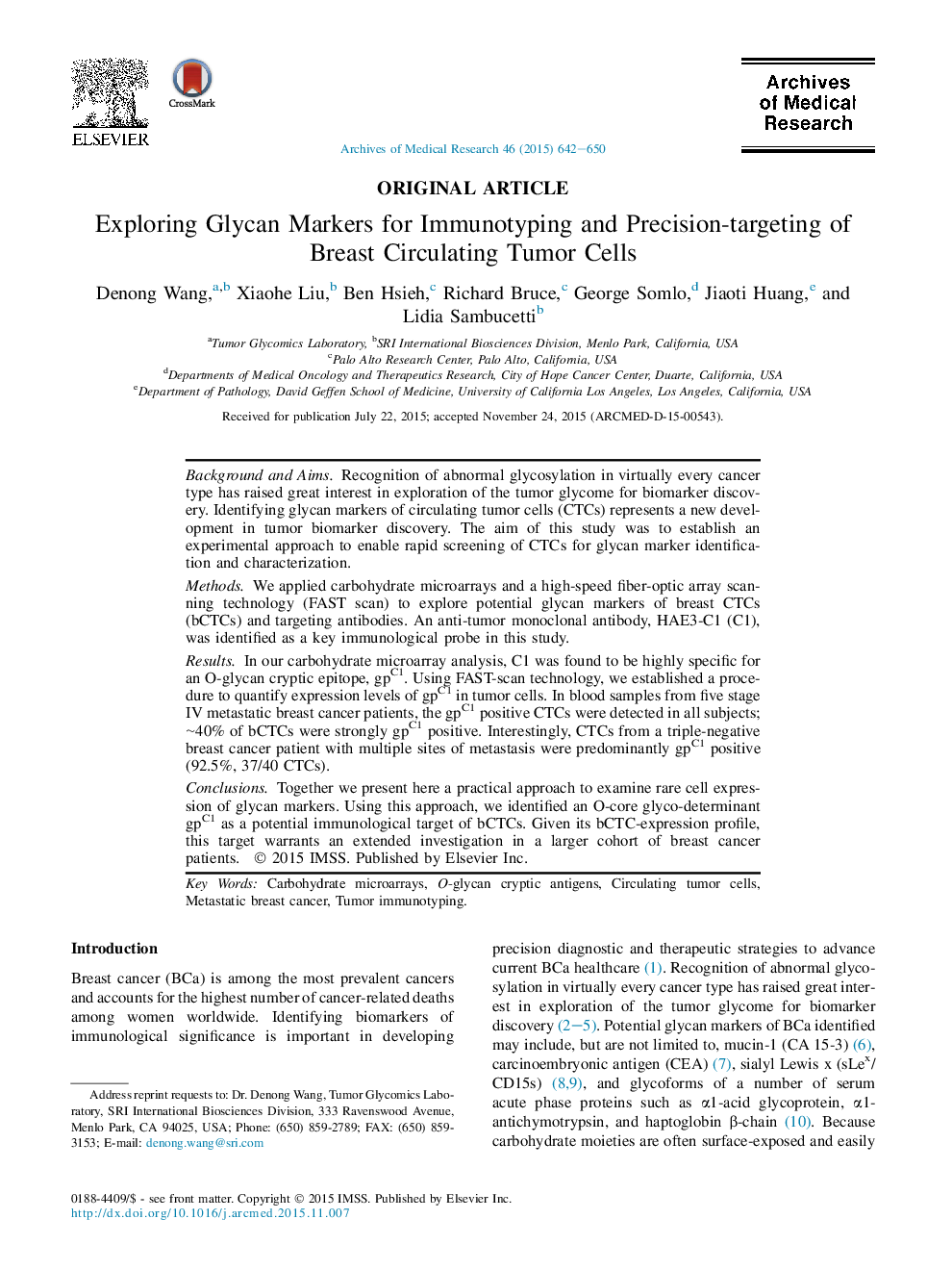| Article ID | Journal | Published Year | Pages | File Type |
|---|---|---|---|---|
| 6149110 | Archives of Medical Research | 2015 | 9 Pages |
Background and AimsRecognition of abnormal glycosylation in virtually every cancer type has raised great interest in exploration of the tumor glycome for biomarker discovery. Identifying glycan markers of circulating tumor cells (CTCs) represents a new development in tumor biomarker discovery. The aim of this study was to establish an experimental approach to enable rapid screening of CTCs for glycan marker identification and characterization.MethodsWe applied carbohydrate microarrays and a high-speed fiber-optic array scanning technology (FAST scan) to explore potential glycan markers of breast CTCs (bCTCs) and targeting antibodies. An anti-tumor monoclonal antibody, HAE3-C1 (C1), was identified as a key immunological probe in this study.ResultsIn our carbohydrate microarray analysis, C1 was found to be highly specific for an O-glycan cryptic epitope, gpC1. Using FAST-scan technology, we established a procedure to quantify expression levels of gpC1 in tumor cells. In blood samples from five stage IV metastatic breast cancer patients, the gpC1 positive CTCs were detected in all subjects; â¼40% of bCTCs were strongly gpC1 positive. Interestingly, CTCs from a triple-negative breast cancer patient with multiple sites of metastasis were predominantly gpC1 positive (92.5%, 37/40 CTCs).ConclusionsTogether we present here a practical approach to examine rare cell expression of glycan markers. Using this approach, we identified an O-core glyco-determinant gpC1 as a potential immunological target of bCTCs. Given its bCTC-expression profile, this target warrants an extended investigation in a larger cohort of breast cancer patients.
